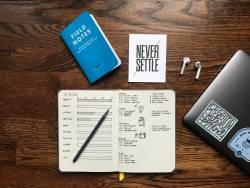
What Is The Difference Between Knowledge And Wisdom?

Knowledge and wisdom are two important words that can change millions of lives on earth. But what exactly do they mean? Do they actually have the same meaning, and can they be correctly used interchangeably?
The truth is that most people mistakenly use these words interchangeably, failing to acknowledge the big difference between the two. Many people do not even understand that these are two different words.
Here, we will consider who some great minds have answered the original question. We will discuss the differences in a manner that will help you make better use of your knowledge and apply wisdom in your daily life.
Action vs. Perspective
According to Tim Toterhi, the founder of Plotline Leadership and TEDx Speaker, “The difference between knowledge and wisdom is action and perspective.”
Knowledge is what you can acquire at any time; you can also apply any acquired knowledge. The next challenge you may have is ensuring competence. From there, you can start talking about efficiency. All these are achievable through actions.
With wisdom, it doesn't always go that way. It takes more to reach the level of wisdom. You will need the experiences forged by actions, as well as the perspective, to understand where you truly fit.
With wisdom, it is not just about taking action. It is more like making the right moves for the right purposes and at the right time. Knowledge will try to handle most tasks, but wisdom will understand when to outsource tasks that are beyond the scope of the individual.
Learned vs. Good Use
According to Diana Gardner Robinson (Ph.D.), owner of Choices Success Strategies, “knowledge relates to facts that you have learned; wisdom is the ability to put that knowledge to good use.”
This is one of the simplest ways of differentiating these two words. This distinction defines knowledge as all the information we get through our five senses, while wisdom pertains to how well we make use of these information and attained knowledge.
As you know already, we learn through our five senses. We can gain knowledge from listening with our ears, seeing with our eyes, smelling with our noses, tasting with our tongue, feeling with our finger/skin. Even when we read, we use our eyes (blind people read by feeling with their fingers).
We demonstrate wisdom by good use of whatever knowledge we have attained. When you hear a gunshot, for instance, you know there is trouble, which is knowledge. Wisdom then tells you to get to a safe corner and call for help if you can. When you see that your indoor plant is looking pale, knowledge tells you it is dying, and wisdom tells you it may need watering.
Bunch of Information vs. Deeper Understanding
According to Karly Hoffman King, a licensed professional counselor, "knowledge is knowing a bunch of information while wisdom speaks to a deeper understanding of yourself, others, and the world around you."
According to this distinction, a knowledgeable person is the one who has gathered lots of information. It may be about a particular subject matter or general knowledge of how things work, but there is nothing deeper than that. Wisdom, on the other hand, comes from openness and willingness to embrace life and learn from the experiences it presents.
While a knowledgeable person can recall a lot of facts about a variety of subjects, a wise person can apply any level of knowledge and learn more from how it plays out. Knowledgeable people always do well in school, and a wise person has a better chance of doing well in life.
The explanation above does not in any way imply that a knowledgeable person cannot be a wise person - far from that. Many wise people are knowledgeable too. Of course, a wise person understands the need to gain more knowledge.
Information vs. Application of Information
According to Dr. C. Dexter Wise III, pastor, author, and teacher, “knowledge is information while wisdom is the application of information to maximize the positive and minimize the negative in any given situation”. He went on to state that “knowledge without wisdom is like a fool with a million dollars”.
One of the best ways to appreciate the big difference between knowledge and wisdom is to consider the world today and humans. With the advent of the internet, people from different parts of the world can easily learn more. Obviously, information has exploded. In fact, many are suffering from what is called information overload.
But has the explosion of information resulted in a wiser human population? That is quite debatable. This is because even as more people gain knowledge, many don't apply the same knowledge to maximize positive and minimize negative in any given situation.
Knowledge without wisdom has also been likened to a computer without software. You can turn it on, but there is no way the average person can use it for any positive thing. Wisdom defines how we make good use of knowledge. Wisdom is also not profitable without knowledge. It is like being a great guitarist without having a guitar. You will not play until you get one. Knowledge and wisdom go hand in hand.
All the great minds in the world agree that knowledge and wisdom are not the same. Many prominent and successful people, besides those we sampled their opinions here, agree that wisdom and knowledge are different things but work closely together. It is also generally believed that knowledge is more about merely assimilating information, while wisdom is deeper. Knowledge can make an individual better when used, but wisdom can make the world a better place.













